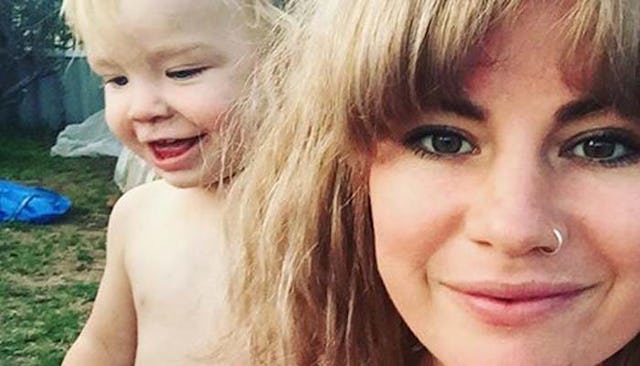Mom's Post Reminds Us We Don't Have To Be Ashamed Of Not Loving Every Second Of Parenthood

Blogger reminds mom not every minute of parenting is enjoyable, and that’s okay
Austrian mommy blogger and all around bad ass Constance Hall is back with another powerful message for stay at home moms – it’s totally fine to admit that you don’t always love staying at home.
You may know Constance Hall from her hilarious thoughts on having sex as a parent , the realities of breast feeding and why we shouldn’t judge moms at the park who are on their phone but in a recent blog post titled The Highs and Lows, Hall manages to sum up perfectly the frustrations that come with being a stay at home parent.
“Before, when I was working I felt valued, I would have conversations about everything, I was contributing financially so I didn’t need to explain every cent I spent, people gave two fucks about my opinions, MY VOICE COUNTED, the only thing my opinion has seemed to count now is bath temperature and whether or not the babies shit is a healthy consistency on the odd occasion that someone else is actually changing it,” she writes.
Hall’s analysis is spot on (especially the part about feeling like you’re the only one who doing diaper duty). Loving your kid or kids isn’t the issue, it’s the feeling that your thoughts and opinions aren’t important, that the person you were before staying at home no longer exists.
Even though there are plenty of stay at home moms who have days when they feel like this, few are brave enough to talk about their feelings openly. Besides the guilt that comes with knowing there are plenty of working moms who would love the financial freedom to become a stay at home parent, there’s also the fear of being called out for not acknowledging that there are worse problems to have besides being a SAHM. “If it’s important to someone, if someone is miserable, comparing their problems to those living in a drought, or those surviving in a war zone will only make them more miserable, miserable over whatever is getting them down and now ashamed over their own misery,” Hall writes about the “first world problems” argument. “One thing I do know is that you will not end world hunger by making miserable people feel ashamed about themselves.”
If stay at home moms had more time on their hands, this would be a great quote to write down and paste above the bathroom mirror, or that corner of the kitchen/laundry room/broom closet we all have where we escape to when we just need a minute away from the kids before we completely lose our shit. It’s totally okay to have periods of unhappiness as a stay at home parent. Just because you may experience moments of longing for what life was like in the days before you answered to “Mommy”, doesn’t make you a bad parent.
In a job where your children don’t pull double duty as your employers, regardless of how annoying your co-workers are, you know when your rewards are coming. You can count on your paycheck coming every two weeks or that annual employee appreciation luncheon where they serve the good rolls. But when you’re a stay at home mom you never know when you’re going to get the kiddie equivalent of a “nice work”. Hall reminds us of the reason why what we do is still worth the effort regardless of the inconsistent rewards. She says:
The reward’s worth more than millions, but you don’t get to choose when they come to you, they’re random and hit you when you least expect them, just when you are feeling so unaccomplished, so exhausted, so “what the fuck is the point in doing another load of washing when a toddler is only going to pull off his nappy and piss on another pillow” BAM a reward flies out of nowhere and Ninja kicks you in the head…
The good moments with your kids are hugely powerful, and can give a stay at home mom the drive she needs to make it until the next one comes along. But if you find yourself unhappy in your role at times, that doesn’t make you a bad mom, or even a bad person. It just means you’re a parent and you’re doing the best you can.
This article was originally published on